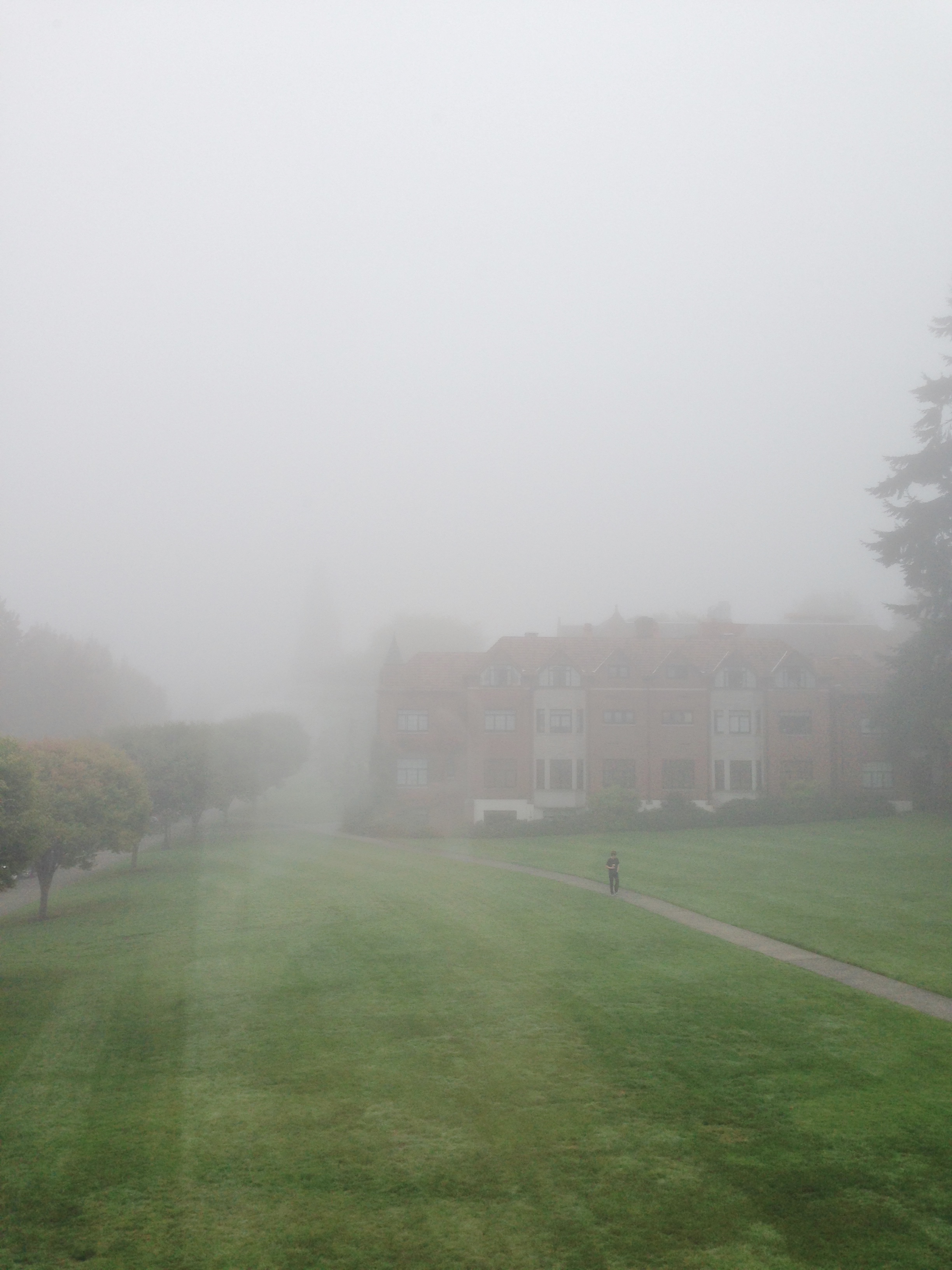
Most residents have noticed an unusually thick fog shrouding the Puget Sound area. It was previously believed that the increase in fog in was due to warmer summers resulting in more moisture in the air during the cooler seasons. However, a recent study conducted by the University of Puget Sound has revealed the thick blankets of fog to actually be smoke covering the area. Scientists at the University have repeatedly tested this smoke and have discovered that it contains high quantities of the chemical compound tetrahydrocannabinol, or THC as it is more commonly known.
“To put it simply, the Puget Sound area is being enveloped in a thick layer of marijuana smoke,” chemistry major Jacob Davids said.
“It’s been pretty milky out there lately,” a local smoke shop owner said, “but I’ve been saving some serious cash on cannabis. I can just walk outside, inhale a couple times and I’m good to start a Terminator marathon.”
Not all are as calm about the dramatic increase in marijuana smoke in the air; many concerned locals are searching for answers. While most reports link the recent legalization of marijuana in Washington to the visible layer of low-level fog, nothing has been officially confirmed.
“The effect is similar to areas where the use of wood-burning fires to heat homes is common. These locations also experience visible smoke throughout the vicinity,” an ecology student said. “This will have many negative effects on individuals and the environment in the near future.”
In a poll created by the University, many individuals said they have noticed that birds, deer and other animals experiencing constant exposure look “generally more chill” than usual, while indoor and underwater animals look like they might “need to take the edge off.”
Despite people noticing much higher levels of “mellowness” across all trophic levels, a large percentage of residents are still concerned about the smoke. In response to these fears, undergraduate students at the University have proposed a solution to cutting down on smoke in the area.
“Do more edibles,” was the conclusion in the report brought forth by the Ecology Department. They believe that by getting “high though ingestion” more often, marijuana emissions can be cut drastically over time.
In the meantime, a public health warning has been issued warning residents that prolonged exposure to the marijuana smoke may have a number of side effects including hunger, red/irritated eyes and eventually lung cancer.
